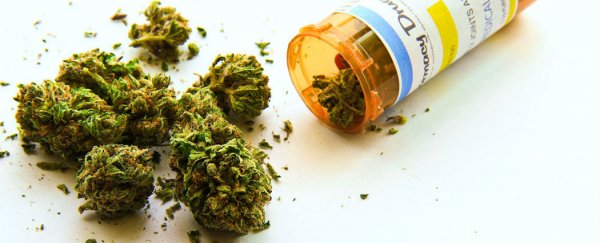Labelling on edible medical marijuana products in the US is rarely accurate, the results of a new study have revealed, with less than one in five of the products analysed displaying the correct amounts of tetrahydrocannabinol (THC) content on their packaging.
The research, published this week in The Journal of the American Medical Association, sourced edible medical marijuana products from online dispensaries located across three major US cities - San Francisco, Los Angeles and Seattle.
Armed with prescription letters from physicians in line with state legal requirements, volunteers were asked to buy several edible marijuana products with a budget of US$400 per city. They were instructed to purchase as wide a variety of products as they could find from the three major categories: baked goods, beverages and candy/chocolate.
Subsequent analysis of the samples found that of the 75 different products purchased - representing stock from 47 different supplier brands - just 17 percent of the tested products were labelled accurately in relation to the levels of THC content. They found that 23 percent of the products were underlabelled, while a whopping 60 percent overstated the amount of THC contained within.
As Catherine Saint Louis at The New York Times reported, the discrepancies in some instances were severe: in one case, a product stated it contained 108 mg of THC per dose while in reality it contained just 3 mg.
The findings matter because, while medical marijuana use is still a controversial topic in many parts of the globe, in locations where its use is legally permitted - and the product costs patients money - it really ought to come under some sort of assured quality control.
The authors of the study, which was a joint work between researchers from two US medical schools and the independently run Werc Shop Laboratory, contend that the mislabelling that occurs on an industrial scale in this sector could have serious, unintended consequences for patients seeking relief from medical marijuana.
Specifically, overlabelled products that don't contain the sufficient stated amount of THC may not produce the desired medical benefit, while underlabelled doses delivering more THC than patients intend to consume run the risk of producing adverse physical effects.
The researchers argue that regulation and quality assurance in this area are sorely needed in order to provide marijuana consumers with a safe, consistent dosage of medicine.
Lead researcher Ryan Vandrey of the Johns Hopkins University School of Medicine told The New York Times, "The point is not to say, 'Hey, X medical marijuana company, you're bad.' [We] don't have the kind of quality assurance for edibles that we have for any other medicine."
The good news is that better industry standards and patient safety are on the horizon, and it's hoped we can get there once a little more of the smoke and paranoia over medical marijuana usage have been blown away.
As commentator Donald Abrams from the San Francisco General Hospital put it to Saint Louis, "When that changes, we'll see the industry rushing to standardise dosing, as well as laboratory testing of products."
